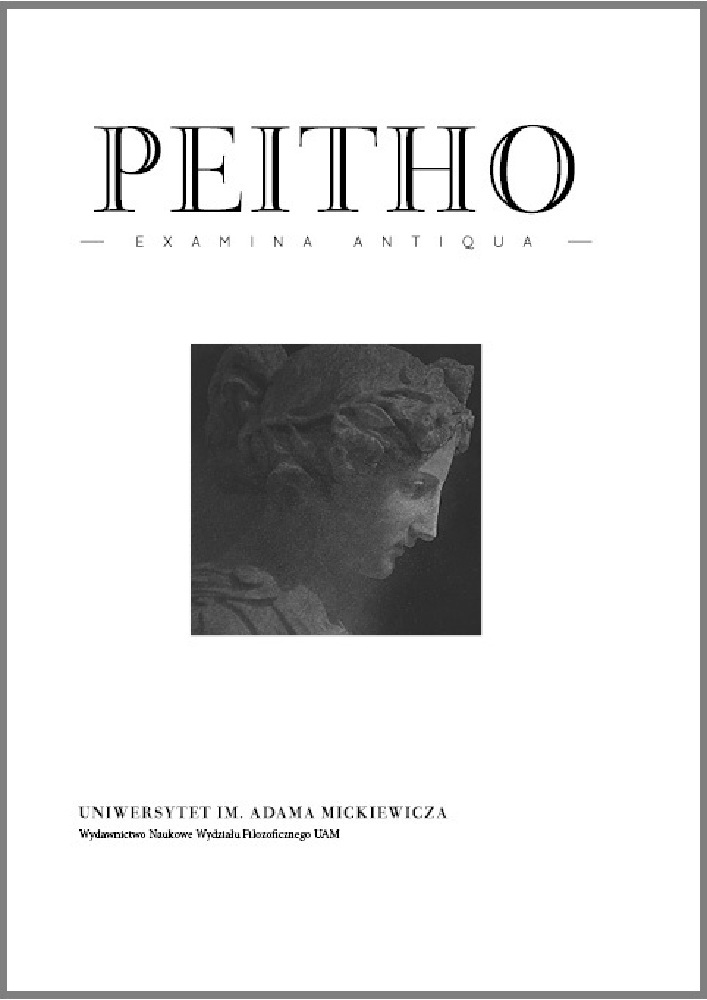Abstract
The paper examines the relation of esotericism and oblique politics in the Byzantine philosopher Michael Psellos (11th century) on the basis of Eva De Vries’ study of the letters that Psellos addressed to the statesman Leo Paraspondylos. Traditionally, the name of Psellos signifies a revival of Neoplatonism in medieval Constantinople according to researchers like Chr. Zervos in the beginning of 20th century. Contemporary researchers such as Anthony Kaldellis and Stratis Papaioannou point to a more organic than speculative theorization in Psellos’ work while another contemporary scholar, Frederick Lauritzen, undertakes a synthesis of the two approaches. In any case, as this paper supports, it would be inadequate to consider the relation of esotericism to politics without referring to the evolution of the moral standards considered in a contextualized manner.
References
Alexander, P.J., 1958, The Patriarch Nicephorus of Constantinople: Ecclesiastical and Image Worship in the Byzantine Empire, Oxford.
Arabatzis, G., 2009, «La noblesse des astres dans la philosophie byzantine», in: G. Arabatzis (ed.), Studies on Supernaturalism, Berlin, pp. 137–156.
Arabatzis, G., 2014, “Nicephoros Blemmydes’s Imperial Statue: Aristotelian Politics as Kingship Morality in Byzantium”, Mediaevistik 27, pp. 99–118.
De Vries-Van der Velden, E., 1999, “Les amitiés dangereuses: Psellos et Léon Paraspondylos”, Byzantinoslavica 60, pp. 315–350.
Kaldellis, A., 1999, The Argument of Psellos’ “Chronographia”, Leiden.
Kaldellis, A., 2005, “The Date of Psellos’ Theological lectures and Education in Constantinople”, Byzantinoslavica 63, pp. 143–151.
Karayannopoulos, J.N., 1992, Histoire de l’État byzantin, (en grec), Thessalonique.
Kazhdan, A., Constable, G., 1982, People and Power in Byzantium. An Introduction to Modern Byzantine Studies, Washington DC.
Lauritzen, F., 2010, “L’ortodossia neoplatonica di Psello”, Rivista di Studi Bizantini e Neoellenici 47, pp. 285–292.
Lauritzen, F., 2013, “The Mixed Life of Plato`s Philebus in Psellos’ Chronographia (6a.8)”, Zbornik radova Vizantinoloskog Institute 50, pp. 399–409.
Lauritzen, F., 2013b, The Depiction of Character in the “Chronographia” of Michael Psellos, Turnhout.
Machiavel, N., 1980, Le Prince, trad. Y. Lévy, Paris.
O’Meara, D., 2012, “Political philosophy in Michael Psellos: the “Chronographia” read in relation to his philosophical work”, in K. Ierodiakonou, B. Bydén (eds.), The Many Faces of Byzantine Philosophy, Athens, pp. 53–171.
Papaioannou, S., 2013, Michael Psellos: Rhetoric and Authorship in Byzantium, Cambridge.
Papaioannou, S., 2012, “Rhetoric and the Philosopher in Byzantium”, in: K. Ierodiakonou, B. Bydén (eds.), The Many Faces of Byzantine Philosophy, Athens, pp. 171–197.
Szlezák, T.A., 1985, Platon und die Schriftlichkeit der Philosophie, Berlin.
Weber, M., 2004, The Vocation Lectures. “Science as a Vocation” – “Politics as a Vocation”, transl. R. Livingstone, Indianapolis.
Zervos, Chr., 1920, Michel Psellos. Un philosophe néoplatonicien du XIe siècle, Paris.
License
Peitho provides immediate open access to its content on the principle that making research freely available to the public supports a greater global exchange of knowledge.
